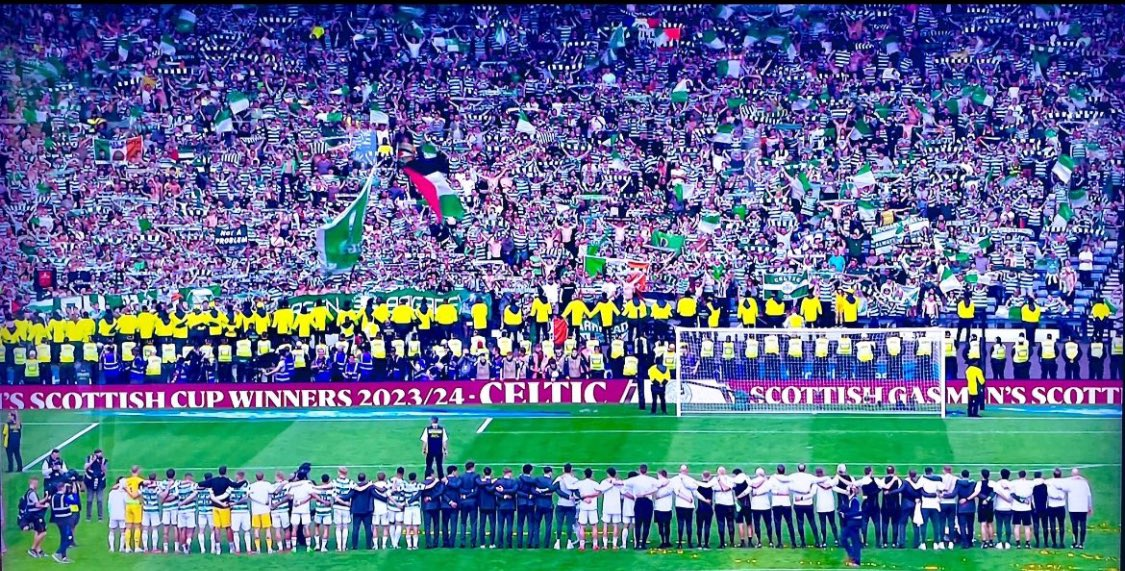More Than a Game: The Old Firm, a Clash of Identities
The roar of the crowd, a sea of green and blue, the electric atmosphere crackling with anticipation – this is the Old Firm derby, a football match unlike any other. Pitting Celtic FC against Rangers FC, it’s a rivalry that transcends sport, its roots deeply entwined with the social, political, and religious fabric of Glasgow and Scotland itself. More than just a game, the Old Firm is a clash of identities, a reflection of a city divided, and a spectacle that captivates millions around the world.
While the football itself is fiercely competitive, with both teams consistently vying for domestic dominance, the rivalry runs far deeper than the pitch. Celtic, traditionally associated with the Catholic community and Irish immigrants, represent Glasgow’s East End. Rangers, historically linked to Protestantism and Unionism, hail from the city’s South Side. This historical divide, coupled with a century of intense competition, has fueled a passion that often spills over into sectarianism and social tension.
A History Forged in Competition
The origins of the Old Firm can be traced back to the late 19th century. Celtic, founded in 1887 by Brother Walfrid, a Marist Brother, aimed to alleviate poverty amongst Irish immigrants in Glasgow’s East End. Rangers, formed just four years earlier, quickly established themselves as a major force in Scottish football.
From the early days, the two clubs dominated the Scottish football landscape. Their frequent encounters, often deciding championships and cup glory, cemented their status as the “Old Firm,” a term thought to be derived from the commercial benefits of their frequent clashes. This dominance is undeniable: between them, Celtic and Rangers have won a staggering 108 league titles, 73 Scottish Cups, and 49 League Cups.
Iconic Matches and Defining Moments
The Old Firm has produced countless memorable matches, etched into the folklore of both clubs. The 1969 Scottish Cup Final, where Celtic, the “Lisbon Lions,” triumphed 4-0, is a particular highlight for Celtic fans. Rangers supporters fondly recall the 1999 Scottish Premier League title decider, a 3-0 victory that secured the championship.
Beyond specific results, the rivalry has also seen moments of both brilliance and controversy. Players like Henrik Larsson for Celtic and Brian Laudrup for Rangers have achieved legendary status through their Old Firm exploits. However, the passion of the fixture has occasionally boiled over, with on-field clashes and crowd trouble marring some encounters.
Beyond the Bragging Rights
While local bragging rights are always at stake, the Old Firm’s significance extends beyond Glasgow. The rivalry often determines the destination of major trophies and shapes the narrative of Scottish football. The two clubs have consistently pushed each other to greater heights, contributing significantly to the development of the Scottish game.
Furthermore, the Old Firm has attracted a global following. The intensity of the rivalry, combined with the historical and cultural context, has captivated fans worldwide. Old Firm games are broadcast internationally, drawing huge audiences and showcasing Scottish football on a global stage.
A Complex and Evolving Rivalry
In recent years, there have been conscious efforts to address the sectarianism associated with the Old Firm. Both clubs have implemented initiatives to promote tolerance and respect, and the atmosphere at matches has generally improved. However, the deep-rooted nature of the rivalry means that tensions can still surface, particularly in the context of wider social and political events.
The Old Firm remains a complex and evolving entity. It’s a rivalry that reflects the history and identity of Glasgow, while also showcasing the passion and intensity of Scottish football. It’s a spectacle that continues to fascinate and divide, a testament to the enduring power of sport to evoke strong emotions and loyalties. Rangers FC
The Future of the Old Firm
As both clubs, Rangers FC and Celtic continue to compete for domestic supremacy, the Old Firm rivalry shows no sign of abating. New generations of players and fans are drawn to the intensity and historical significance of the fixture, ensuring its place at the heart of Scottish football.
While the challenges of addressing sectarianism and promoting respect remain, the Old Firm also offers a platform for positive change. By embracing its unique position, the rivalry can contribute to a more inclusive and tolerant society, demonstrating that passion for sport can coexist with respect for others.
The Old Firm derby is more than just a football match. It’s a cultural phenomenon, a reflection of history, and a symbol of identity. It’s a rivalry that has captivated generations, and will continue to do so for many years to come.
Discover more from
Subscribe to get the latest posts sent to your email.
